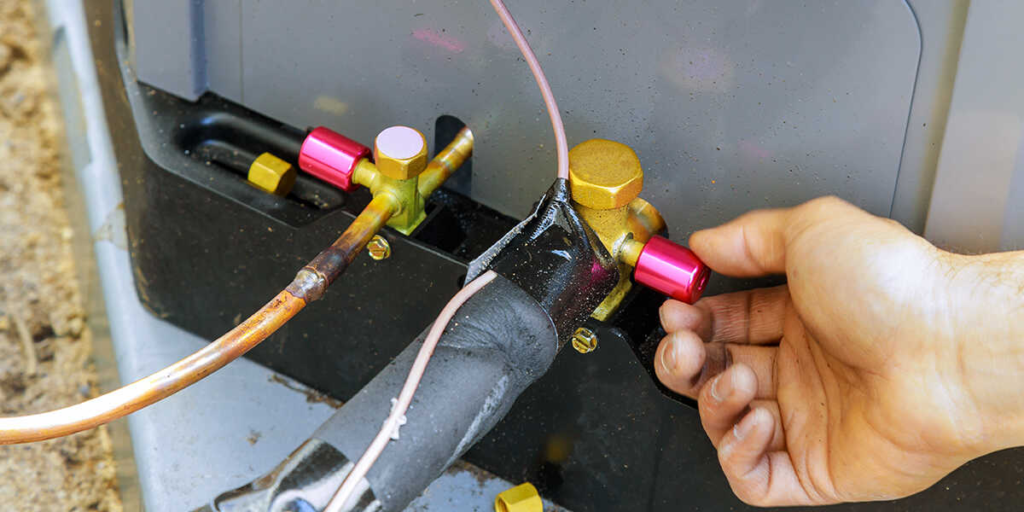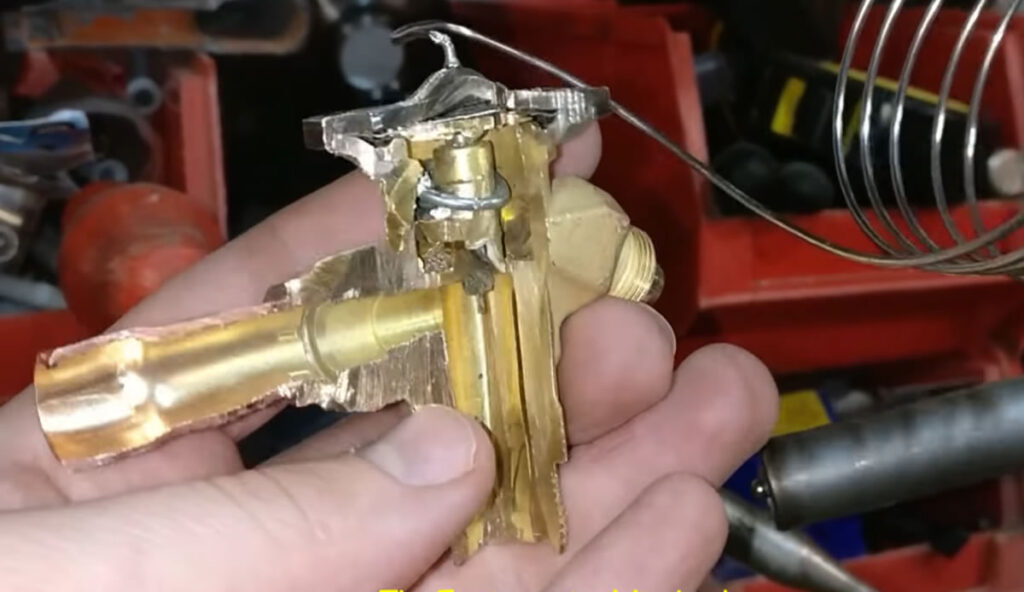When your car’s air conditioning (AC) system isn’t working properly, one of the most common culprits is the AC expansion valve. This small yet crucial component controls the flow of refrigerant, ensuring your AC cools your car efficiently. Without it, your AC might blow warm air or even freeze up. In this article, we’ll explore everything you need to know about AC expansion valves, how they work, the signs of failure, and how to maintain or replace them.
AC Expansion Valve: A Quick Overview
The AC expansion valve is a critical part of your car’s air conditioning system. It regulates the amount of refrigerant that enters the evaporator and ensures proper cooling. When the valve works correctly, your AC delivers consistent, cold air. But if it fails, you might experience weak airflow, warm air from the vents, or even a frozen AC system.
Understanding the function and importance of this component can help you diagnose AC issues early and avoid costly repairs.
What Is an AC Expansion Valve?
The AC expansion valve is a small mechanical device that controls the flow of refrigerant inside the air conditioning system. It helps maintain the right pressure and temperature by adjusting the amount of refrigerant that moves into the evaporator coil.
Here’s how it works in simple terms:
- The expansion valve lowers the pressure of the refrigerant before it enters the evaporator.
- This process allows the refrigerant to absorb heat efficiently, cooling the air inside your vehicle.
- If the valve is clogged or malfunctioning, it can cause cooling problems or even damage other AC components.
How Does an AC Expansion Valve Work?
The AC expansion valve operates based on temperature and pressure changes inside the system. Here’s a step-by-step breakdown of how it functions:

- Refrigerant Enters Under High Pressure – The refrigerant arrives at the expansion valve in a high-pressure liquid state after being compressed by the AC compressor.
- Pressure Drops – The expansion valve reduces the pressure of the refrigerant, allowing it to expand.
- Cooling Effect – The drop in pressure causes the refrigerant to cool down before entering the evaporator.
- Regulated Flow – The valve adjusts how much refrigerant enters based on the AC system’s cooling demand.
- Heat Absorption – The now-cool refrigerant absorbs heat from the car’s cabin, creating a comfortable temperature.
A malfunctioning expansion valve can throw off this entire process, leading to cooling inefficiencies or system failure.
Types of AC Expansion Valves
There are several types of AC expansion valves, each designed for different cooling systems:
- Thermal Expansion Valve (TXV) – Uses a temperature sensor to adjust refrigerant flow.
- Orifice Tube Expansion Valve – A fixed system that restricts refrigerant flow at a set rate.
- Electronic Expansion Valve (EEV) – Uses electronic sensors for precise control.
- Block Type Expansion Valve – A compact version often used in modern vehicles.
Understanding which type your vehicle has can help diagnose and fix AC issues more efficiently.
Signs of a Bad AC Expansion Valve
A failing AC expansion valve can cause noticeable problems in your car’s cooling system. Here are some common signs:
Weak or Warm Air from Vents
If your AC is blowing weak or warm air, the expansion valve might be clogged or stuck. A malfunctioning valve can restrict refrigerant flow, reducing cooling performance.
AC System Freezing Up
A faulty expansion valve can allow too much refrigerant into the evaporator, causing it to freeze up. If you notice ice forming on AC components, it could be due to an overactive expansion valve.
Common symptoms of a freezing AC system include:
- Cold air turning warm suddenly.
- Frost on AC pipes.
- Unusual moisture buildup inside the car.
Ignoring this issue can damage the AC compressor and other expensive components.
Strange Hissing or Clicking Noises
Unusual hissing or clicking sounds coming from the AC system often indicate an expansion valve issue. These noises may be due to:
- A clogged valve restricting refrigerant flow.
- A worn-out valve struggling to open or close properly.
- Pressure imbalances in the AC system.
If you hear strange sounds along with poor cooling performance, it’s time to have your AC checked.
Causes of AC Expansion Valve Failure
Several factors can lead to AC expansion valve failure, including:

- Dirt and Debris – Contaminants can clog the valve, restricting refrigerant flow.
- Moisture Buildup – Water in the system can freeze inside the valve, blocking refrigerant movement.
- Wear and Tear – Over time, the valve components can degrade, affecting performance.
- Incorrect Refrigerant Levels – Too much or too little refrigerant can put stress on the expansion valve.
How to Fix a Faulty AC Expansion Valve
Fixing a bad AC expansion valve typically involves:
- Inspecting the Valve – Checking for blockages, leaks, or damage.
- Cleaning the AC System – Removing dirt and moisture to prevent future issues.
- Replacing the Expansion Valve – If the valve is beyond repair, replacing it is the best solution.
- Recharging the AC System – Ensuring proper refrigerant levels after replacing the valve.
If you’re unsure, it’s best to consult a professional mechanic for proper diagnosis and repair.
Can You Drive with a Bad AC Expansion Valve?
Technically, yes, you can still drive your car with a faulty expansion valve, but it’s not recommended. A bad valve can lead to:
- Poor cooling performance, making summer drives uncomfortable.
- Increased stress on other AC components, leading to expensive repairs.
- Potential damage to the AC compressor, which is a costly part to replace.
If you notice AC issues, it’s best to get them fixed before they worsen.
How to Maintain Your AC Expansion Valve
To extend the lifespan of your AC expansion valve, follow these maintenance tips:
- Regularly Service Your AC System – Check refrigerant levels and clean components.
- Use the Right Refrigerant – Using incorrect refrigerant can damage the valve.
- Keep the AC System Clean – Dirt and moisture can clog the expansion valve over time.
- Run Your AC Periodically – Even in colder months, running the AC helps keep components lubricated.
Proper maintenance can prevent costly repairs and ensure your AC works efficiently year-round.
How Much Does It Cost to Replace an AC Expansion Valve?
The cost of replacing an AC expansion valve varies depending on the vehicle make and model. On average, you can expect to pay:
- $150 to $350 for the valve itself.
- $200 to $500 for labor costs if done by a professional.
In total, the replacement cost typically ranges from $350 to $850. Doing the replacement yourself can save on labor costs, but it requires knowledge of the AC system.
The Bottom Line
The AC expansion valve plays a crucial role in your car’s air conditioning system, regulating refrigerant flow to keep the cabin cool. If your AC is blowing warm air, freezing up, or making strange noises, the expansion valve might be the culprit. Regular maintenance and prompt repairs can help keep your AC running smoothly, ensuring a comfortable driving experience.
If you suspect an issue with your AC expansion valve, don’t ignore it—getting it checked early can prevent expensive repairs down the road!


